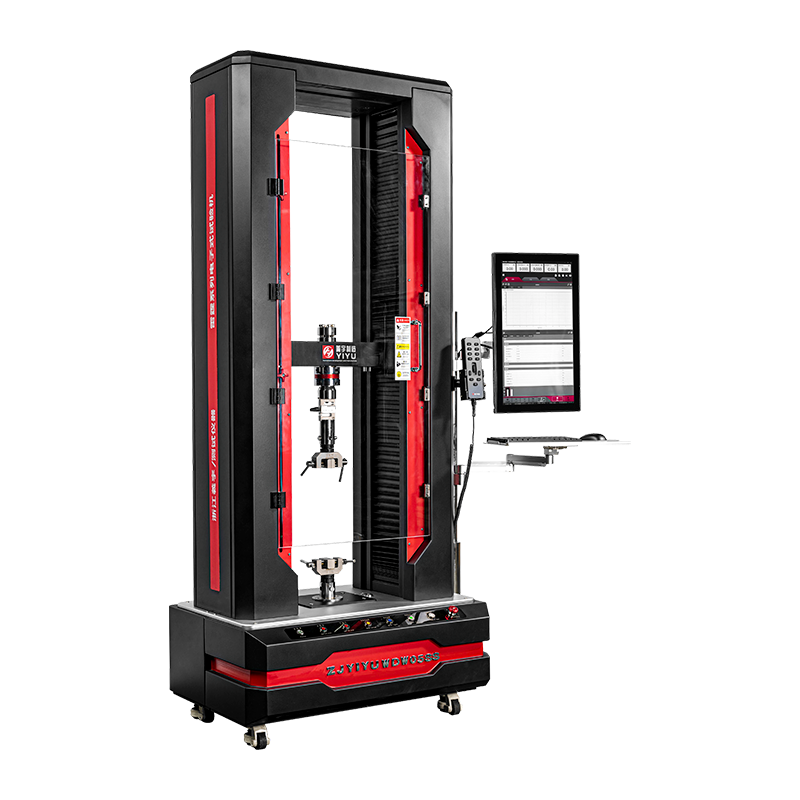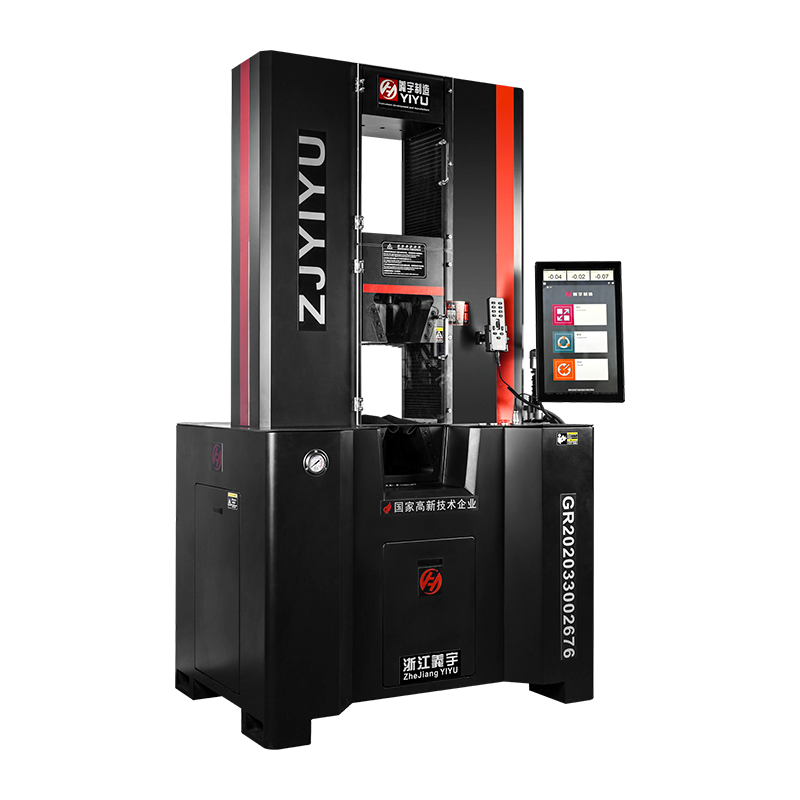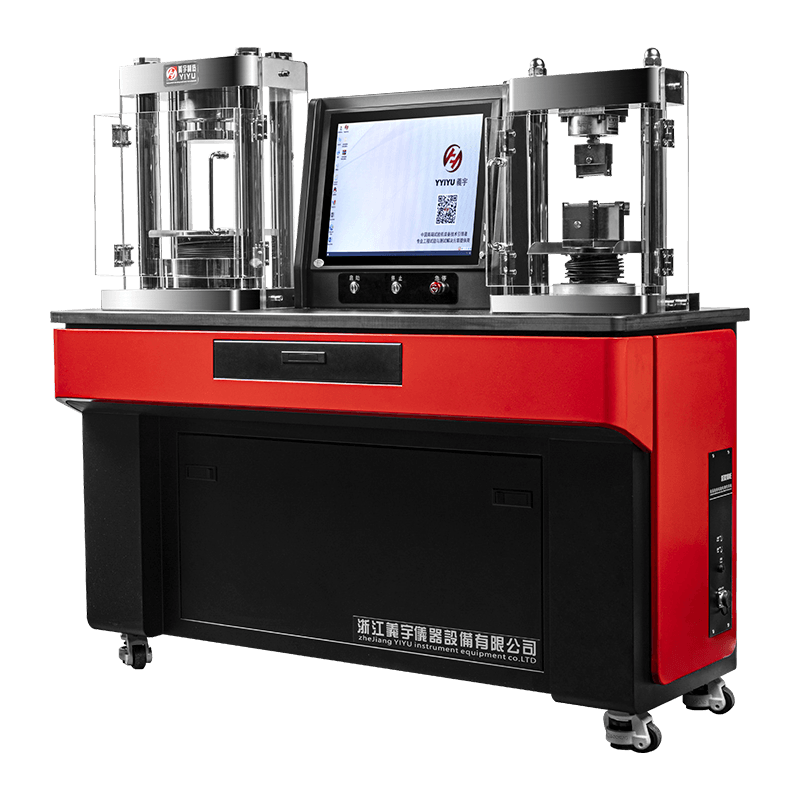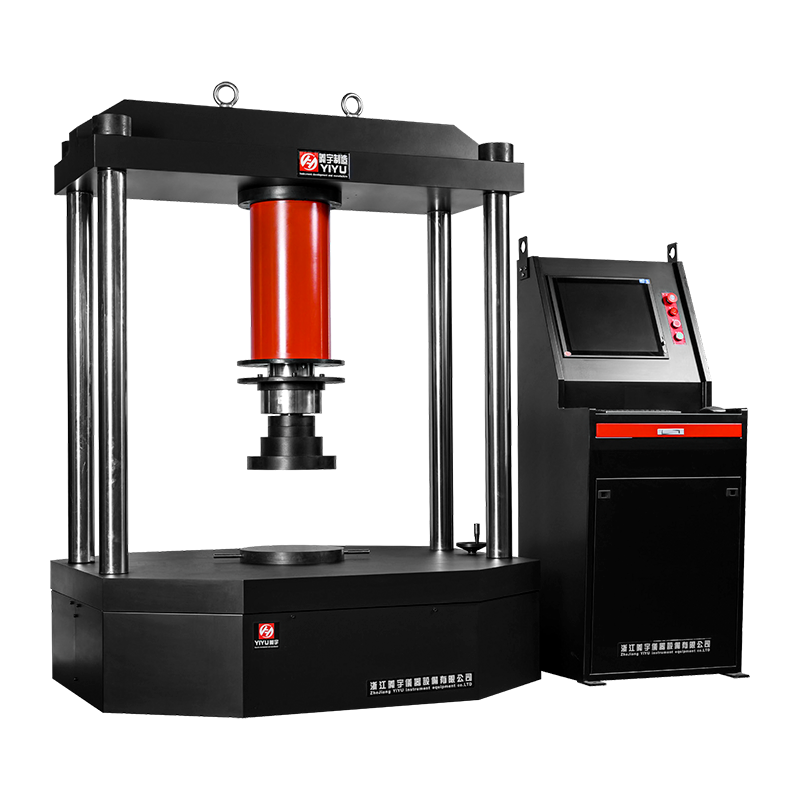With the continuous advancement of aerospace technology, the requirements for materials are becoming more and more stringent. The safety, reliability and performance of key components such as aircraft, engines, and spacecraft directly depend on the materials used. In order to ensure that these components can operate efficiently in extreme environments, it is crucial to develop materials that meet high standards. In the process of material research and development, universal test machine price, as a core testing equipment, plays an irreplaceable role.
The basic principle and function of universal test machine price
Universal test machine price is an instrument used to test the mechanical properties of materials. It can measure the physical properties of materials such as stress, strain, and elastic modulus under these loads by applying different forms of loads, such as tension, compression, and bending. Through these tests, researchers can gain a deep understanding of the mechanical properties of materials, and then optimize their structure and composition to meet the strict requirements of the aerospace industry for high-performance materials.
Basic principle
Universal test machine price consists of a frame, a loading device, a sensor, and a control system. The load device applies force to the sample, and the sensor records the deformation, strain and other data generated by the material during the force process. The control system is responsible for collecting and analyzing these data to evaluate the performance of the material under different load conditions. The test results can help researchers further understand the mechanical properties of the material, such as strength, stiffness, ductility, and fatigue resistance.
Function
In the aerospace industry, universal test machine price can not only help test the basic mechanical properties of materials, but also test the materials under extreme conditions such as high temperature, high pressure, and fatigue to ensure that the materials can maintain excellent performance in various complex environments. These data provide a strong basis for the research and development and optimization of materials, and help designers choose suitable materials for innovation and design.
Application of universal test machine price in the research and development of aerospace materials
The research and development of aerospace materials is a complex process involving multiple disciplines and technologies. The emergence and optimization of new materials depends not only on the chemical properties of the materials themselves, but also on their mechanical performance under extreme working environments. As a basic and efficient experimental equipment, universal test machine price is widely used in the research and development stage of aerospace materials. The following are its main roles in this process:
Screening and verification of new materials
In the field of aerospace, in order to improve the performance of aircraft, researchers often need to develop new materials, such as lightweight high-strength alloys, composite materials, and advanced materials that are resistant to high temperatures and corrosion. Since aerospace equipment often operates under high temperature, high pressure, low temperature and extreme weather conditions, the selection of materials must undergo rigorous performance verification.
By using universal test machine price, researchers can perform precise mechanical property tests on different candidate materials. Taking tensile testing as an example, universal test machine price can measure the strain behavior of materials under different tensile forces to reveal their strength and ductility. In addition, compression, bending and shear tests can also help researchers gain an in-depth understanding of the material's compressive and bending resistance. Through these tests, engineers can screen out new materials that meet the requirements.
When developing new materials, universal test machine price can also simulate the performance of materials in high temperature environments. For example, through high temperature tensile testing, the application potential of materials in engines and fuselage components can be evaluated. Through these data, researchers can better understand the performance of different materials at high temperatures and promote the development of high-temperature alloys and ceramic materials.
Performance optimization and alloy ratio research
For aerospace materials, the composition and ratio of the alloy directly affect the performance of the material. For example, aluminum alloys, titanium alloys and magnesium alloys are widely used in the aerospace field, but their specific formulas will be adjusted according to different usage scenarios to meet the requirements of strength, weight and corrosion resistance.
In this process, the role of universal test machine price is particularly critical. It can conduct comprehensive tests on samples with different alloy ratios, and help engineers analyze the mechanical properties of different alloys through multi-angle experiments such as stretching, compression, bending, etc., and find possible optimization space in the alloy ratio. Through repeated experiments and optimization, researchers can eventually find the optimal alloy ratio, thereby improving the overall performance of aerospace materials.
Fatigue performance and long-term reliability testing
Aerospace vehicles and aircraft will experience a large number of dynamic loads in actual operation, such as airflow vibrations encountered by aircraft during flight and repeated engine starts and stops, which will have long-term fatigue effects on materials. Therefore, fatigue performance testing has become a key link in material research and development.
Universal Test Machine Price can simulate the fatigue state of aerospace materials in long-term use by providing continuous loading and unloading cycles, helping researchers evaluate the durability of materials under frequent cyclic loads. Fatigue testing is particularly important for parts that are frequently subjected to stress, such as aircraft fuselages and engine casings. Through these tests, researchers can more accurately predict the life of materials and ensure safety in aerospace applications.
Material performance testing under high temperature and high pressure environments
Aerospace materials often need to work in extreme temperature and high pressure environments. For example, engine components may face the effects of high-temperature airflow when working, and spacecraft will also experience extremely high temperatures when entering the atmosphere. In order to ensure the reliability of these materials in special environments, Universal Test Machine Price provides testing functions that simulate high temperature and high pressure conditions.
Through high temperature and high pressure tensile, compression and other tests, researchers can obtain performance data of materials in extreme environments. For example, the test can simulate the expansion behavior of engine parts at high temperatures and analyze the thermal stability of materials; or through high pressure testing, verify the compressive resistance of materials under changes in external pressure of spacecraft. These tests provide a scientific basis for the development of high-temperature materials and help improve the overall safety of spacecraft.
Fracture and toughness analysis of materials
The fracture toughness of materials is crucial in aerospace applications. Crack extension or fracture of key components of spacecraft, aircraft and engines may lead to serious safety accidents. universal test machine priceBy conducting fracture toughness tests, it is possible to evaluate the fracture behavior of materials under stress, analyze the stress distribution before and after fracture, and the crack extension mode.
By conducting this test on materials, researchers can evaluate the performance of materials in high stress environments and ensure that they have sufficient toughness to cope with uncertainties and impact loads during flight.






